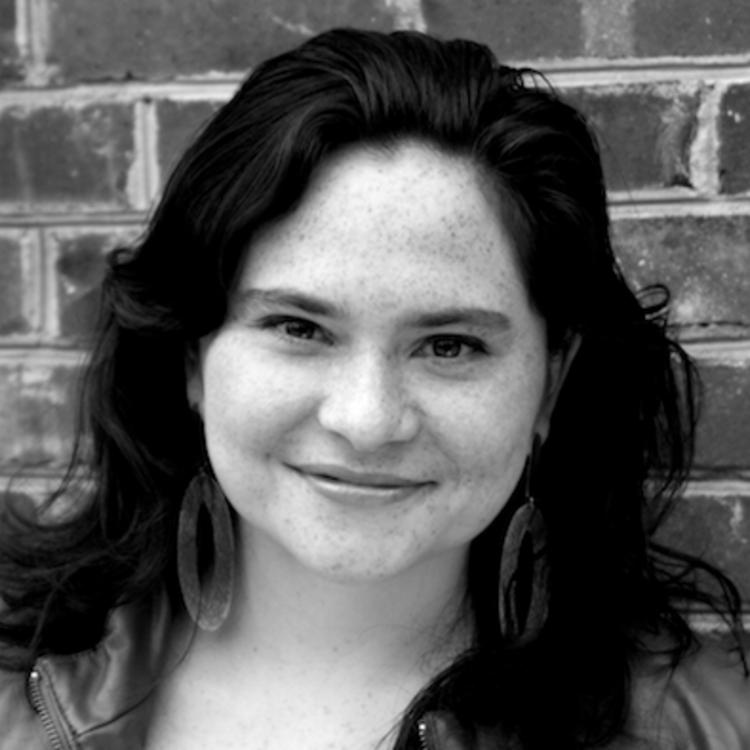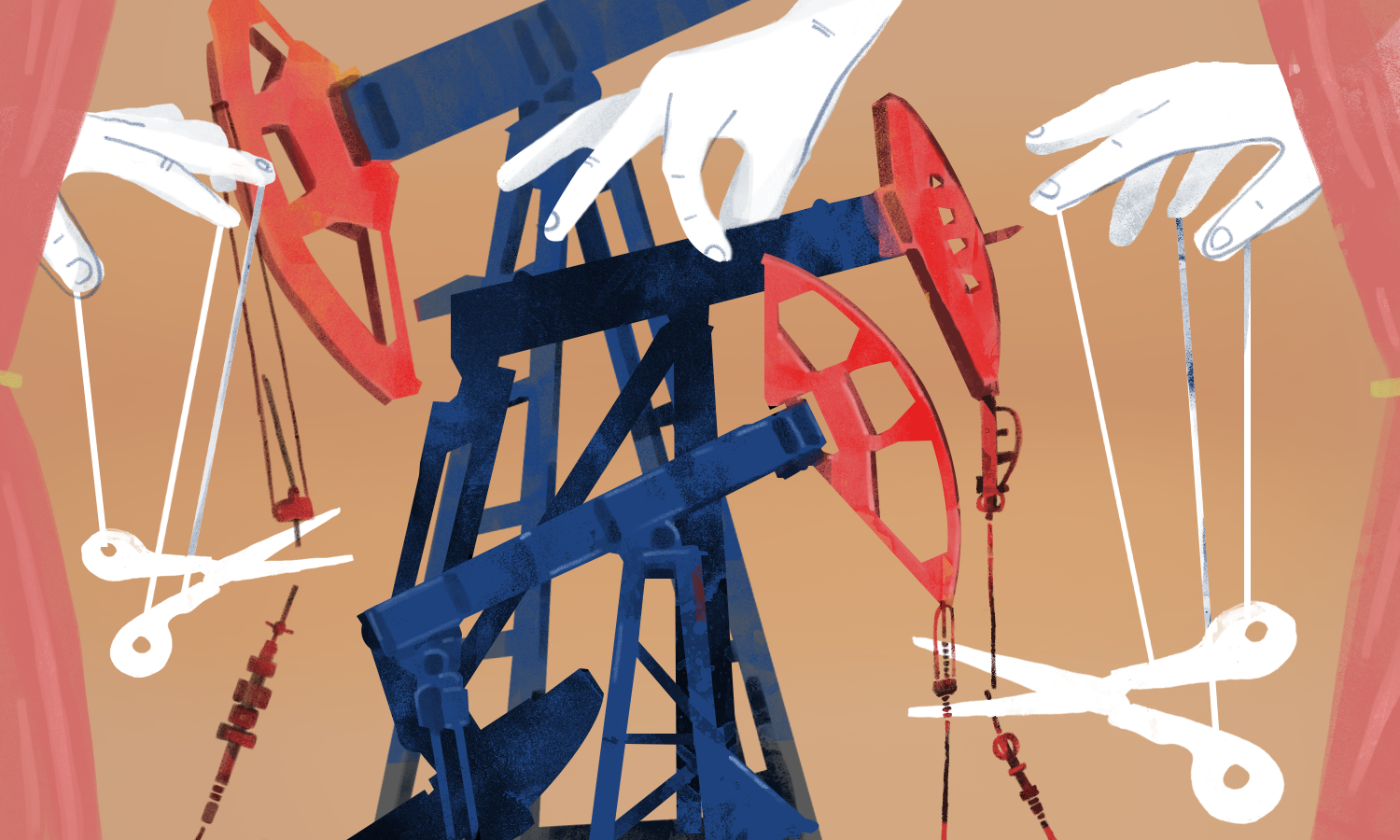An equitable, thriving future for the arts sector is predicated on arts workers taking responsibility for the larger unjust systems we are a part of. Our global economy, and the arts sector inside of that, is extractive—of resources, of labor, of time, of hope, of futures. It is driven by manufactured scarcity. (If you haven’t taken an Econ 101 class, google a syllabus. Scarcity is the first principle usually taught!) The lifeblood of the extractive economy is the fossil fuel industry, which is also responsible for the climate crisis we are now experiencing. The fossil fuel industry depends on continued extraction from and violence against the earth, and disproportionately creates collateral damage in Black, Indigenous, people of color (BIPOC) communities around the world, which are positioned as “sacrifice zones.”
Conversation in the United States arts sector on these issues tends to be limited to three areas: a) reduce/reuse/recycle, b) carbon footprint/carbon offsets, and 3) lobbying our political leaders. While all of these efforts are laudable, they do not challenge the core extractive structures of the fossil fuel industry, and in fact these strategies do not sufficiently acknowledge the magnitude of the problem before us.
An equitable, thriving future for the arts sector is predicated on arts workers taking responsibility for the larger unjust systems we are a part of.
With all that in mind, here’s a narrative we propose: We arts workers have the power to move our society through a “just transition,” from an extractive economy to a regenerative economy. The Just Transition framework seeks to unify the environmental movement with the labor movement, with the main idea being to transition away from exploitative economies and instead center the voices, stories, and experiences of the frontline communities most deeply and already impacted by the changing climate: Indigenous peoples, low-income communities, and people of color.
We arts workers won’t do this work alone, of course, but we do have a unique role to play. Our role in a global just transition away from fossil fuels hinges on dismantling the fossil fuel industry’s social license to operate—the perceptions of the public that a project, company, or industry is socially acceptable or legitimate.
The fossil fuel industry garners this license through extensive philanthropic giving and sponsorships. ExxonMobil, for instance, while being the fourth largest polluter, is one of the most charitable corporate donors in the world. In 2019, it gave two million dollars to arts and culture organizations. Another example is Shell, the lead sponsor for New Orleans Jazz & Heritage Festival; Shell’s website even touts: “People know us and trust us – Jazz Fest is a big part of how we earn that trust.”
Here’s the good news. We already have many success stories about arts institutions divesting from fossil fuel ties. The National Theatre in London, the Royal Shakespeare Company, the Van Gogh museum, and the Tate museums have all ended significant fossil fuel sponsorship relationships in the last five years. All of those organizations are in Europe, and the ties between arts organizations and fossil fuel sponsorships in the United States goes much deeper. While we may not see “Shell Center” or “ExxonMobil Stage,” that doesn’t mean theatres aren’t directly implicated. The big banks that support major theatre institutions—Wells Fargo, J.P. Morgan, Chase Bank, Citibank, and Bank of America—invest billions in the fossil fuel industry. Their corporate sponsorships and donations are in most major theatre playbills (if not on the marquee). Their CEOs are on the boards of major theatre organizations (a quick search provides examples of the Goodman Theatre, NY Classical Theatre, and the Kimmel Center). One would be hard-pressed to find a theatre organization with a budget over $250,000 that does not have major bank representation on their board of directors.
Our role in a global just transition away from fossil fuels hinges on dismantling the fossil fuel industry’s social license to operate.
This doesn’t mean we should all throw up our hands and give up. It only means there is even more potential for change. In 2017, the U.S. Bureau of Economic Analysis outlined in its annual Arts and Cultural Production Satellite Account that the full breadth of nonprofit and commercial performing arts was a $730 billion industry—a larger share of the nation’s GDP than transportation, tourism, agriculture, or construction. While the United States nonprofit theatre complex is a small subset of that, imagine the shift we could make if theatres and theatre workers divest from extractive industries.
If theatre workers took a public stand, we could put pressure on museums, symphonies, festivals, and other arts institutions, who could then put more pressure on others. A $730 billion industry could ultimately take a stand. Imagine the cracks we could make in the fossil fuel industry’s social license to operate. Social pressure is powerful—and you don’t have to believe us. Tina Rosenberg, the Pulitzer Prize–winning journalist and author of Join the Club: How Peer Pressure Can Transform the World, has seen this pressure work firsthand. From student-led resistance groups in former Yugoslavia to teenagers in Florida, Rosenberg argues that the “greatest motivator of defiance to authority comes from one’s peers.” And we in the arts are persuasive storytellers, are we not?
So here’s our ask: whether you’re an individual arts worker or an institutional representative, make the first step to divesting right now. We have a few suggested pathways to offer.
In our conversations with colleagues about the practicality of how arts organizations can divest, we have noticed resistance to the concept. It often comes from a scarcity mindset, framed through the idea that you have to take what money you can get. However, what possibilities arise if we shift to an abundance mindset? Instead of operating out of fear about the consequences of divestment (“What if there’s no other money?”), what if we operated out of wonder at the new possibilities divestment might open up (“What new relationships might come into my circle once I divest from unjust funds and funding?”)
Place-based investment funds (such as Boston’s Ujima Project) are emerging in regions across the country. They are controlled by community members and support local businesses and projects, and historically have had significant numbers of investors of color. Arts institutions can reinforce their commitment to community accountability by positioning themselves as worthy recipients of these place-based investment funds—receiving literal buy-in from their community.
More broadly, arts institutions can turn to their ecosystem for partnership in new forms of community and philanthropic building. Let’s say the goal for an arts institution in Alaska is to divest from fossil fuels. A new framing for the organization could be to align with other non-arts organizations and entities that share a goal of advancing a new regenerative state economy, one that centers Indigenous leadership and the caretaking of land. That partnership and shared vision would, no doubt, open up new paths to resources outside of oil money. When we move to an abundance mindset, more opportunities reveal themselves.
Divesting from fossil fuels and grinding the gears of the fossil fuel industry to a halt also ignites a transformational impact for the arts sector.
It may seem like a leap that divesting in the arts sector could have a meaningful impact in the United States. However, researchers and activists agree that this is a key strategy for change. Fossil Free champions it—dismantling the fossil fuel industry’s social license to operate through the work of cultural organizations is one of the campaign’s three key strategies.
Thus far, we’ve addressed how divesting from fossil fuels is a critical strategy to ensuring our global health. But divesting from fossil fuels and grinding the gears of the fossil fuel industry to a halt also ignites a transformational impact for the arts sector. In this moment, our field is losing artists who need to cope with the effects of climate change and related issues. Whether because of flooding, displacement, or healthcare costs from pollution, our colleagues are being left behind. But when the theatre field moves from an extractive economy to a regenerative one, the burden placed on the BIPOC communities who have been on the frontlines of experiencing the impacts of the climate crisis is lessened. And, to be clear, BIPOC communities on the frontlines aren’t strangers or statistics—they are our administrative and producing colleagues, our commissioned playwrights, our front of house staff, and everyone in between.
As the field continues to grapple with how to enact racial justice and works to create more explicitly anti-racist arts spaces, it’s important that we hold that climate justice is racial justice. Climate justice is economic justice. We can’t have an equitable arts field or an equitable arts future without climate justice and a just transition away from fossil fuels.
Divesting is hard, and it is possible. Finding new sources of investment is hard, but it is possible. What we offer in our vision of the future is a narrative of abundance: We arts workers have the agency and power to dismantle the fossil fuel industry’s social license to operate. And while so many of us are scared of being hypocritical—advocating for change while not yet fully embodying it—that we don’t start taking action where we can, with this narrative we are also challenging the idea of perfectionism, which is an underpinning of capitalist white supremacy. To that end, we invite arts organizations and individuals to make a pledge to one of many possible action steps towards fossil fuel divestment.
May we all have the courage to tell stories of our future that center abundance, interconnectedness, and regenerative care. May we all have the strength to lay aside stories of scarcity, individualism, and extraction, which don’t serve us. May we all, no matter where we are in our journeys, imperfectly begin. Join us.











Comments
The article is just the start of the conversation—we want to know what you think about this subject, too! HowlRound is a space for knowledge-sharing, and we welcome spirited, thoughtful, and on-topic dialogue. Find our full comments policy here